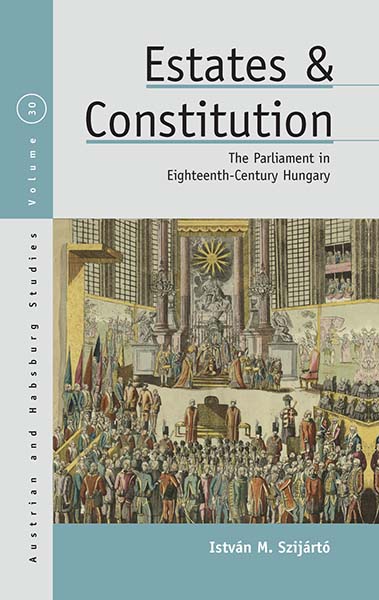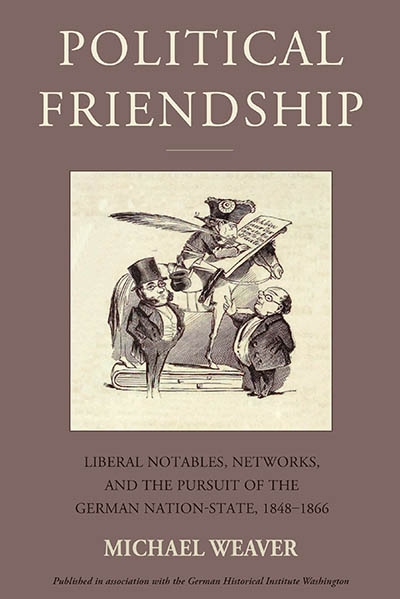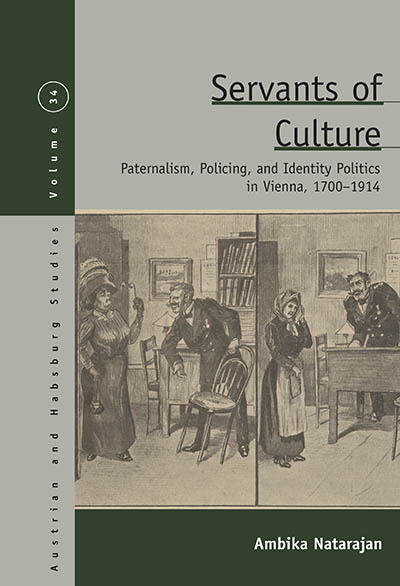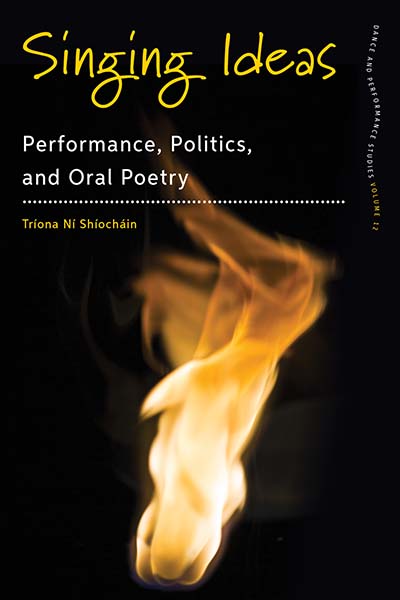Home -> Browse
-

Antisemitism in Galicia
Agitation, Politics, and Violence against Jews in the Late Habsburg Monarchy
Buchen, T.
In the last third of the nineteenth century, the discourse on the “Jewish question” in the Habsburg crownlands of Galicia changed fundamentally, as clerical and populist politicians emerged to denounce the Jewish assimilation and citizenship. This pioneering study investigates the interaction of agitation, violence, and politics against Jews on the periphery of the Danube monarchy. In its comprehensive analysis of the functions and limitations of propaganda, rumors, and mass media, it shows just how significant antisemitism was to the politics of coexistence among Christians and Jews on the eve of the Great War.
Subjects: History: 18th/19th Century Jewish Studies
Area: Central/Eastern Europe
-

Estates and Constitution
The Parliament in Eighteenth-Century Hungary
Szijártó, I. M.
Across eighteenth-century Europe, political power resided overwhelmingly with absolute monarchs, with notable exceptions including the much-studied British Parliament as well as the frequently overlooked Hungarian Diet, which placed serious constraints on royal power and broadened opportunities for political participation. Estates and Constitution provides a rich account of Hungarian politics during this period, restoring the Diet to its rightful place as one of the era’s major innovations in government. István M. Szijártó traces the religious, economic, and partisan forces that shaped the Diet, putting its historical significance in international perspective.
Subject: History: 18th/19th Century
Area: Central/Eastern Europe
-

Political Friendship
Liberal Notables, Networks, and the Pursuit of the German Nation State, 1848-1866
Weaver, M.
Between periods of revolution, state repression, and war across Central and Western Europe from the 1840s through the 1860s, German liberals practiced politics beyond the more well-defined realms of voluntary associations, state legislatures, and burgeoning political parties. Political Friendship approaches 19th century German history’s trajectory to unification through the lens of academics, journalists, and artists who formed close personal relationships with one another and with powerful state leaders. Michael Weaver argues that German liberals thought with their friends by demonstrating the previously neglected aspects of political friendship were central to German political culture.
Subject: History: 18th/19th Century
Area: Germany
-

Servants of Culture
Paternalism, Policing, and Identity Politics in Vienna, 1700-1914
Natarajan, A.
In nineteenth century Cisleithanian Austria, poor, working-class women underwent mass migrations from the countryside to urban centers for menial or unskilled labor jobs. Through legal provisions on women’s work in the Habsburg Empire, there was an increase in the policing and surveillance of what was previously a gender-neutral career, turning it into one dominated by thousands of female rural migrants. Servants of Culture provides an account of Habsburg servant law since the eighteenth century and uncovers the paternalistic and maternalistic assumptions and anxieties which turned the interest of socio-political players in improving poor living and working conditions into practices that created restrictive gender and class hierarchies. Through pioneering analysis of the agendas of medical experts, police, socialists, feminists, legal reformers, and even serial killers, this volume puts forth a neglected history of the state of domestic service discourse at the turn of the 19th century and how it shaped and continues to shape the surveillance of women.
Subjects: History: 18th/19th Century Refugee and Migration Studies Gender Studies and Sexuality
Area: Central/Eastern Europe
-

Singing Ideas
Performance, Politics and Oral Poetry
Ní Shíocháin, T.
Considered by many to be the greatest Irish song poet of her generation, Máire Bhuí Ní Laeire (Yellow Mary O’Leary; 1774–1848) was an illiterate woman unconnected to elite literary and philosophical circles who powerfully engaged the politics of her own society through song. As an oral arts practitioner, Máire Bhuí composed songs whose ecstatic, radical vision stirred her community to revolt and helped to shape nineteenth-century Irish anti-colonial thought. This provocative and richly theorized study explores the re-creative, liminal aspect of song, treating it as a performative social process that cuts to the very root of identity and thought formation, thus re-imagining the history of ideas in society.
Subjects: Performance Studies History: 18th/19th Century Anthropology (General) Literary Studies
Area: Europe






